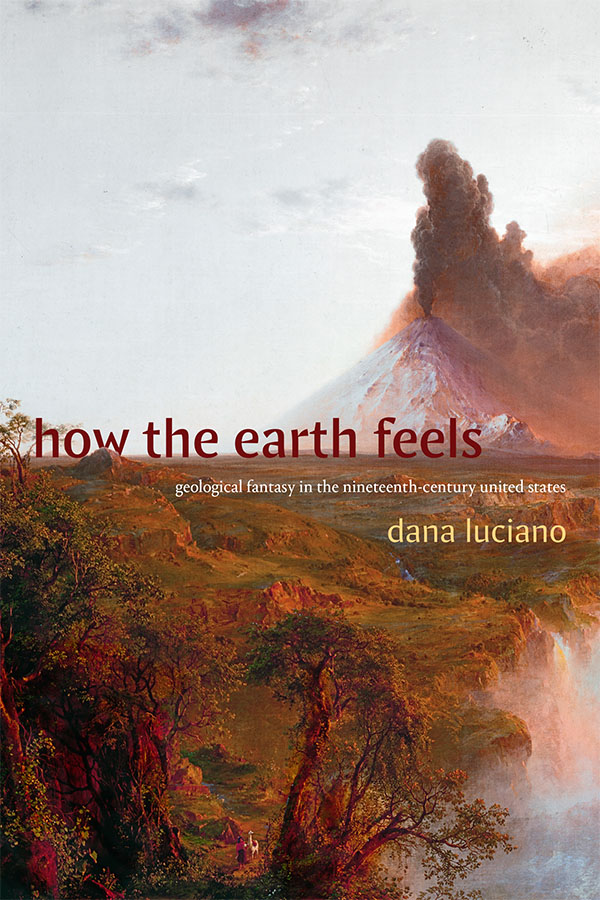Dana Luciano discusses "How the Earth Feels: Geological Fantasy in the Nineteenth-Century United States"

Dana Luciano, Associate Professor of English and Women’s, Gender, and Sexuality Studies at Rutgers University, will discuss her book How the Earth Feels: Geological Fantasy in the Nineteenth-Century United States (Duke University Press, 2024) in the Greenhouse environmental humanities book talk series on Monday, 22 April 2024 at 16:00 Central European time in Norway / 10:00 Eastern.
Zoom link: https://stavanger.zoom.us/j/69200487373?pwd=ak5xL3U3clFGNk1hWnpqUmJvSElndz09
In How the Earth Feels Dana Luciano examines the impacts of the new science of geology on nineteenth-century US culture. Drawing on early geological writings, Indigenous and settler accounts of earthquakes, African American antislavery literature, and other works, Luciano reveals how geology catalyzed transformative conversations regarding the intersections between humans and the nonhuman world. She shows that understanding the earth’s history geologically involved confronting the dynamic nature of inorganic matter over vast spans of time, challenging preconceived notions of human agency. Nineteenth-century Americans came to terms with these changes through a fusion of fact and imagination that Luciano calls geological fantasy. Geological fantasy transformed the science into a sensory experience, sponsoring affective and even erotic connections to the matter of the earth. At the same time, it was often used to justify accounts of evolution that posited a modern, civilized, and Anglo-American whiteness as the pinnacle of human development. By tracing geology’s relationship with biopower, Luciano illuminates how imagined connections with the earth shaped American dynamics of power, race, and colonization.